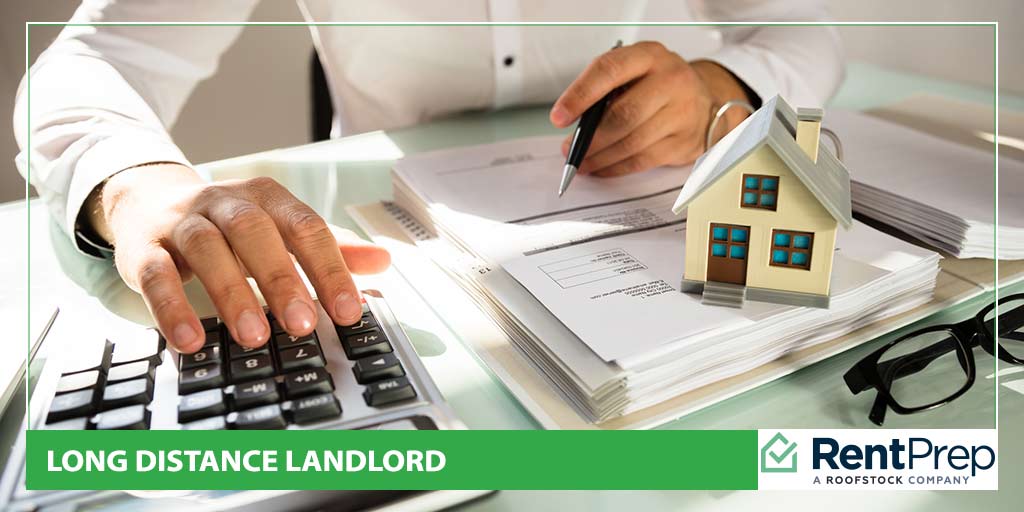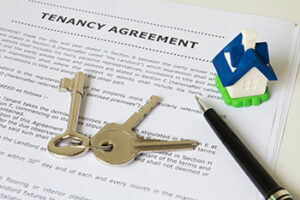
Being a landlord is being in a career that everybody has an opinion about. Whether or not they have any experience actually renting out their properties, nearly everyone has an idea of what it means to be a landlord and how to do the job properly.
When thinking about how to manage property remotely in order to keep your family home, get a vacation property, or otherwise diversify your life, you have to consider whether or not you truly want to become a long distance landlord.
Even for those that have experience in the real estate industry, dealing with the challenges of being a landlord from a distance can make them even more complex.
Today, we’ll discuss the issues you may come across while managing rental property long distance so you can have a better success rate in this endeavor!
A Table Of Contents For How To Manage Property Remotely
- When Is Long Distance Management The Right Choice?
- Screening Long Distance Tenants
- 3 More Tips From Long Distance Landlord Experts
When Is Long Distance Management The Right Choice?

Before we get into the deeper details of how to manage property remotely, you need to decide if you really want to become a long distance landlord or not.
There are a few common situations that lead someone to consider becoming a long distance landlord. But is becoming a landlord the right choice in all of these cases? Let’s talk this out.
1. Moving Temporarily
Sometimes, you need to move to a new city for a few years, but you don’t want to give up your property back at home. Becoming a distant landlord for this temporary period is a good way to manage properties in two different locations.
2. Inherited Property
Often, long distance landlords get their start when they inherit property from a relative that passed. Rather than try to sell the property, many see the potential to make money and choose to become a landlord instead. The success in this situation depends largely on the property condition, size, and location.
3. Vacation Hunter
Sometimes, people buy vacation homes with the intent to rent it out when they will not be visiting. This effectually makes them into long distance landlords, and this is a good reason to start renting a property.
4. Investment Potential
Finally, some people get into the business of managing properties from a distance as an investment. If you are someone who can plan thoroughly, this is a great way to make money from the hottest reality markets around the world.
Ultimately, whether or not managing long distance properties is right for you will depend on the specific situation you are dealing with. Managing properties isn’t for everyone, so you want to be sure that you are making the right choice before you commit to this line of work.
Screening Tenants From Afar

The main thing that landlords who will be managing properties from far away need to remember is that their choice of tenant is key to the success of the project. If you choose tenants that aren’t great or who will not respect your property, you are going to lose money. If you choose tenants that aren’t going to pay rent at all or on time, you are going to lose money.
When you are giving up local control of a property, you need to become even more picking as you screen your tenants.
But choosing great tenants isn’t always easy. Even though there are a lot of warning signs that you can look out for when you are browsing rental applications, that doesn’t mean that you will always notice these risks.
The best way to ensure you are getting the right tenants for your property is to use a high-quality tenant screening service to help you find the right tenant for each of your properties. With the help of a service, you can filter to applicants that match your very specific profiles with ease.
Great tenants are more likely to take care of your property and report any potential problems to you quickly, so take whatever time you need to find the best of the best tenants out there to rent to!
Warning!
Even though you want to make sure you are thoroughly screening all rental applicants, be sure that you do not violate any part of the Fair Housing Act laws when choosing your tenants. It is illegal to consider religion, race, familial status, nationality, and a number of other factors when choosing tenants, so be sure that they are not part of your selection criteria.
3 More Tips About Long Distance Management
If you’re already a landlord, becoming a long distance landlord means that you will simply need to adapt your current landlord tactics to work while you are not in the immediate area. These tips can help you do that.
If you have never been a landlord before, these tips will help you start to shape a more complete vision of what it means to be a landlord, from a distance or nearby!
1: Have Someone Nearby On Call
Whether you choose to higher a local property management service to check up on the property or you simply have a friend in the area that can do the occasional drive by, you will want to have someone that you trust nearby the property on call in case of emergency situations. Additionally, they can give you peace of mind regarding the property’s status.
2: Lock Down Your Lease
The lease is one of the most important parts of the rental process no matter where you are renting your property. In long distance situations, an iron-clad lease will help prevent any back-and-forth that can be compounded by the communication issues associated with long distance relationships.
3: Automate Payments
To make the process of collecting payments more simple than ever before, set up an online system that tenants can log in to in order to pay their rent each month. With this type of system, you will not need to worry about snail mail any longer.
You Can Manage It All!
No matter where in the world you want to become a landlord, you can do it! Even if you don’t plan to live in the area, there are many ways to go about managing rental property long distance. The key is that you are very thorough and complete in all of your management tasks.
By focusing on:
- Choosing the right tenants through thorough screening.
- Automating payments.
- Getting local help when needed.
- Firming up your lease
You’ll be able to have a very successful business running long distance rental properties all around the world!

